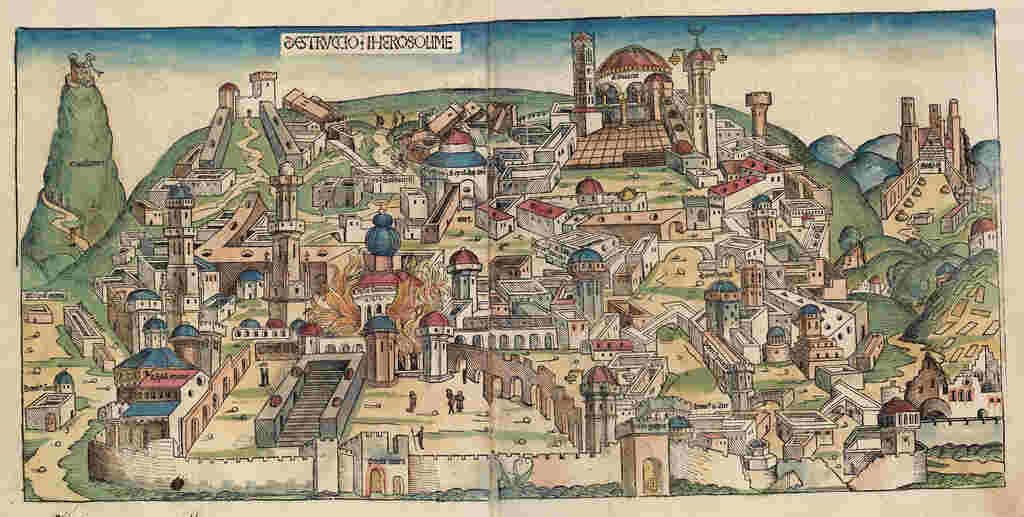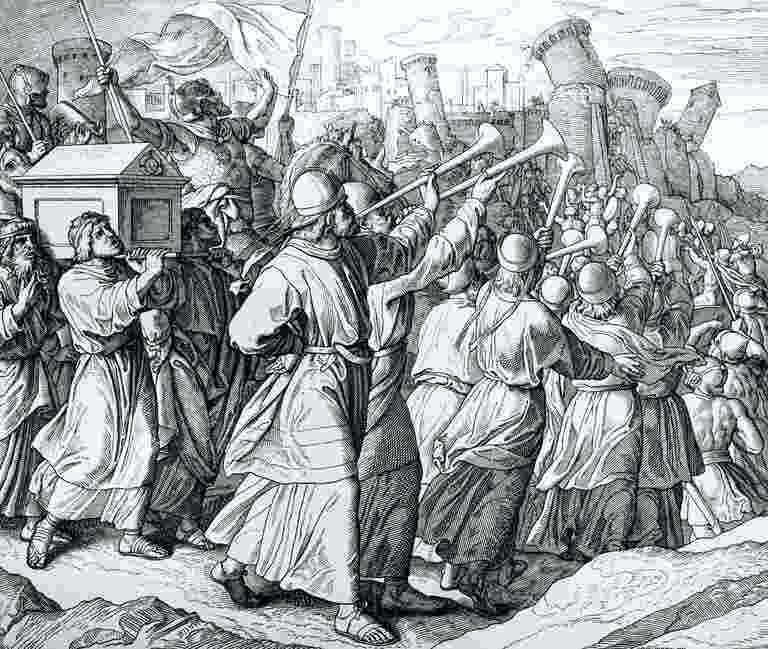Purim
Purim is a Jewish holiday of biblical origin and of rabbinical institution, which commemorates the events related in the Book of Esther: the miraculous deliverance from a massacre of great magnitude, planned against them by Haman the Agaggite in the Persian Empire under the reign of Ahasuerus (Xerxes I).
Purim commemorates the saving of the Jewish people from Haman, an Achaemenid Persian Empire official who was planning to kill all the Jews, as recounted in the Book of Esther (מגילת אסתר, “Megillat Ester” in Hebrew; usually dated to the 5th century BC).
The feast is celebrated annually on 14 Adar (in February or March of the Gregorian calendar). When the month of Adar is doubled (embolismic years), Purim is celebrated on the 14th of Adar II. This date corresponds to the last Full Moon of winter, a moon before the first Full Moon of spring, marked by the feast of Passover.
To the traditional practices, recorded in the Book of Esther and ordered by the Sages of the Mishnah, were added various customs, in particular culinary, with the hamantaschen or deblas (en), as well as joyful and carnival events, and the custom rattles at the mention of the name of Haman.
Purim festivities
On the feast of Purim, the public reading of the book of Esther is a highlight during which the children joyfully engage in a ritual intended to keep them focused on reading: each time in the text the name of the wicked Aman, children must scream, drummer, make noise with a rattle! Another tradition on Purim is to send food and drink to friends. It is also important to be generous on the occasion of Purim, so this is a great time to donate or help those in need.
Purim: origins and meanings
Purim, also called “The Day of Spells”, is a Jewish celebration that commemorates the events related in the book of Esther of the Torah. It celebrates the massacre planned by Haman the Agaggite throughout the territory of the Persian Empire, an event that was experienced as a divine deliverance by the Jewish people. A long battle begins, after two days of fierce fighting and the Jews finally regain their freedom, something they no longer dared to believe.
Unlike Passover where it is about supernatural miracles, the happy ending of Purim represents the action of God hidden within the natural laws. To pay tribute to this battle, we celebrate for two days. The night before, we go to the synagogue to follow the celebration of Esther. There follows a meal under the sign of joy where the consumption of wine is a little less moderate than usual. The men then offer consumable gifts to other men and the women give them to other women. The next day, the fast is imposed, the faithful are asked to show solidarity with the community and to pass on its values. It is also a day of carnival, the faithful dress up and parade in the street.
Blessings before Megillah reading
Before the reading of the Megillah on Purim, both at night and again in the morning, the reader of the Megillah recites the following three blessings and at the end of each blessing the congregation then responds by answering “Amen” after each of the blessings.
At the morning reading of the Megillah the congregation should have in mind that the third blessing applies to the other observances of the day as well as to the reading of the Megillah:
| Hebrew | English |
|---|---|
ברוך אתה יהוה אלהינו מלך העולם אשר קדשנו במצותיו וצונו על מקרא מגלה | Blessed are You, Hashem, our God, King of the universe, Who has sanctified us with His commandments and has commanded us regarding the reading of the Megillah. |
ברוך אתה יהוה אלהינו מלך העולם שעשה נסים לאבותינו בימים ההם בזמן הזה | Blessed are You, Hashem, our God, King of the universe, Who has wrought miracles for our forefathers, in those days at this season. |
ברוך אתה יהוה אלהינו מלך העולם שהחינו וקימנו והגיענו לזמן הזה | Blessed are You, Hashem, our God, King of the universe, Who has kept us alive, sustained us and brought us to this season. |
Blessing and recitations after Megillah reading
After the Megillah reading, each member of the congregation who has heard the reading recites the following blessing. This blessing is not recited unless a minyan was present for the Megillah reading:
| Hebrew | English |
|---|---|
ברוך אתה יהוה אלהינו מלך העולם האל הרב את ריבנו והדן את דיננו והנוקם את נקמתינו והמשלם גמול לכל איבי נפשנו והנפרע לנו מצרינו ברוך אתה יהוה הנפרע לעמו ישראל מכל צריהם האל המושיע | Blessed are You, Hashem, our God, King of the Universe, (the God) Who takes up our grievance, judges our claim, avenges our wrong; Who brings just retribution upon all enemies of our soul and exacts vengeance for us from our foes. Blessed are You Hashem, Who exacts vengeance for His people Israel from all their foes, the God Who brings salvation. |
After the nighttime Megillah reading the following 2 paragraphs are recited:
The first one is an acrostic poem that starts with each letter of the Hebrew alphabet, starting with “Who balked (… אשר הניא) the counsel of the nations and annulled the counsel of the cunning. When a wicked man stood up against us (… בקום עלינו), a wantonly evil branch of Amalek’s offspring …” and ending with “The rose of Jacob (ששנת יעקב) was cheerful and glad, when they jointly saw Mordechai robed in royal blue. You have been their eternal salvation (תשועתם הייתה לנצח), and their hope throughout generations.”
The second is recited at night, but after the morning Megillah reading only this is recited:
The rose of Jacob was cheerful and glad, when they jointly saw Mordechai robed in royal blue. You have been their eternal salvation, and their hope throughout generations.
At night and in the morning:
| Hebrew | English |
|---|---|
שושנת יעקב צהלה ושמחה בראותם יחד תכלת מרדכי. תשועתם היית לנצח ותקותם בכל דור ודור. להודיע שכל קויך לא יבשו ולא יכלמו לנצח כל החוסים בך. ארור המן אשר בקש לאבדי ברוך מרדכי היהודי. ארורה זרש אשת מפחידי ברוכה אסתר בעדי וגם חרבונה זכור לטוב | To make known that all who hope in You will not be shamed (להודיע שכל קויך לא יבשו); nor ever be humiliated, those taking refuge in You. Accursed be Haman who sought to destroy me, blessed be Mordechai the Yehudi. Accursed be Zeresh the wife of my terrorizer, blessed be Esther who sacrificed for me—and Charvonah, too, be remembered for good (וגם חרבונה זכור לטוב) [for suggesting to the King that Haman be hanged on the gallows.] |
Women and Megillah reading
Some Modern Orthodox leaders have held that women can serve as public Megillah readers. Women’s megillah readings have become increasingly common in more liberal Modern Orthodox Judaism, though women may only read for other women, according to Ashkenazi authorities.
Sources: Chabad-Lubavitch Media Center, The Guardian, Britannica
Photo credit: Wikimedia Commons
Photo explaination: Gaily wrapped baskets of sweets, snacks and other foodstuffs given as mishloach manot on Purim day.



